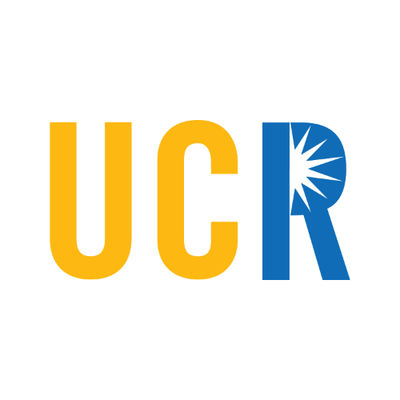--Lodo Expands Its Preclinical Pipeline with Selective Proteasome Inhibitors with Potential Application in Solid Tumor Cancers and Other Indications-- --Transaction Includes Exclusive License to Intellectual Property from University of California, Riverside and Michigan State University-- --Acquired Portfolio Is Compatible with and Optimized by Lodo's Next-Generation Natural Product Drug Discovery Platform-- NEW YORK, Sept. 3, 2020 /PRNewswire/ -- Lodo Therapeutics Corp. (Lodo), a biotechnology company reinventing natural product drug discovery by applying its informatics-enabled technology platform to previously undruggable disease targets, today announced that it has completed the acquisition of Hibiskus BioPharma, Inc. (Hibiskus). In a related transaction, Lodo has acquired exclusive worldwide rights from the University of California, Riverside (UCR) and Michigan State University (MSU) to preclinical proteasome and immunoproteasome inhibitors developed by the co-founders of Hibiskus. Together, these two transactions enable Lodo to consolidate the proteasome inhibitor portfolio and related intellectual property, know-how and early stage research. These selective proteasome and immunoproteasome inhibitors were discovered by Hibiskus co-founder and cancer researcher André Bachmann, PhD, Professor of Pediatrics and Associate Chair for Research at Michigan State University, College of Human Medicine, and co-founder Michael Pirrung, PhD, a Distinguished Professor and drug researcher at UCR. Dr. Pirrung is a member of Lodo's Scientific Advisory Board (SAB). Professor Bachmann noted, "Despite recent advances, far too many cancers remain poorly treated. Preclinical studies conducted at the National Cancer Institute (NCI) and elsewhere suggest these novel proteasome inhibitors could potentially play a role in the treatment of a number of solid tumor cancers, and we are delighted that the experienced and committed team at Lodo will now be overseeing their preclinical and clinical development." The lead preclinical molecule, TIR-199, now known as LODO-141, is an irreversible and potent hybrid cyclic peptide proteasome inhibitor from the syrbactin natural product family. The foundational work of Dr. Bachmann and his colleagues identifying the proteasome inhibitor properties of the syrbactin family was published in Nature. LODO-141 is structurally distinct from marketed proteasome inhibitors, retains activity against chemoresistance to these inhibitors, and is highly selective with a well-characterized mechanism of action. Studies conducted in chemoresistant cell lines published earlier this year in Leukemia Research showed that LODO-141 is more effective than three marketed proteasome inhibitors in resistant multiple myeloma and mantle cell lymphoma. Preclinical studies conducted by the NCI and other researchers and reported in the Journal of Biological Chemistry produced promising early data. LODO-141 demonstrated antiproliferative activity in multiple human solid tumor cell lines including renal, colon, NSCLC, CNS, melanoma, ovarian, prostate and breast cancer. efficacy has been demonstrated in a multiple myeloma xenograft model, and most notably, in hollow fiber models of solid tumor carcinomas. These early data support Lodo's plans to develop LODO-141 as a treatment for solid tumors and possibly other cancers. Dale Pfost, PhD, Chairman and CEO of Lodo, commented, "This is our second targeted transaction at Lodo and reflects our disciplined acquisition strategy based on the extensive experience of our senior team in executing value-creating transactions. We believe these novel proteasome inhibitors are an excellent fit for Lodo. They are derived from natural products and have the potential for improved efficacy and therapeutic index compared to existing proteasome inhibitors, a mainstay of multiple myeloma treatment. Early studies conducted at the NCI and elsewhere suggest that LODO-141 may have utility in treating solid tumors. We intend to assess its potential as a single agent and also in combination with cancer immunotherapy." Dr. Pfost added, "Importantly, these compounds are compatible with our next-generation drug discovery technology, and we anticipate using our P4 Platform to optimize manufacturing and identify additional analogs with potential improvements in anti-cancer activity and safety profile. Lodo is uniquely positioned to expand the chemical space around these molecules with clearly differentiated profiles that we intend to develop specifically for the treatment of solid tumors." Dr. Pirrung noted, "I am pleased that Lodo will be developing our novel proteasome inhibitors and exploring ways to expand their utility. As a member of Lodo's SAB with long-standing interests in natural product derived drugs, I appreciate the potential of Lodo's platform to transform natural product drug discovery by making it rational, efficient and highly productive. My past work with Lodo CEO Dale Pfost and CFO Don Marvin, along with the talented team of scientists they have assembled, bode well for their success in reinventing this rich source of innovative drugs." The addition of the proteasome and immunoproteasome inhibitor portfolio via the license from UCR, along with the insights and know-how Lodo is acquiring from Hibiskus, expands the company's pipeline of novel cancer compounds. Lodo anticipates having candidates from two initiatives—its Wnt pathway inhibitor program and selective proteasome inhibitor program—positioned to begin clinical testing starting in 2023. Hibiskus BioPharma was established with support from Spartan Innovations and Red Cedar Ventures, both wholly owned subsidies of the Michigan State University Foundation. Lodo is acquiring all the operating assets of Hibiskus and consolidating them at its facilities in New York City. Further financial details of the transactions were not disclosed. About Lodo Therapeutics Lodo is reinventing natural product drug discovery with its technology enabled P4 Platform™ and ClusterTech™ suite of informatics tools. Our DNA-first approach taps the structurally diverse, biologically relevant drug-like molecules encoded in microbial DNA. Lodo integrates breakthroughs in next-generation sequencing, artificial intelligence/machine learning and cheminformatics and structural biology to identify, characterize and prioritize lead molecules . Lodo uses synthetic biology to boost production and enhance candidate molecules' pharmacologic properties, including their ability to engage challenging targets. Together, these integrated technologies increase the scalability, efficiency and productivity of the discovery process by orders of magnitude. We view our ability to efficiently access, annotate and prioritize large numbers of natural product drug-like molecules as a historic breakthrough. Following successful initial collaborations with two leading global partners, Lodo is developing a pipeline of oncology drugs and seeking additional partners in a range of indications. Lodo is headquartered in New York City and is supported by top tier investors, including Arch Venture Partners, Alexandria Venture Investments, Pfizer, AbbVie and Lilly. For more information, visit lodotherapeutics.com. Contact: Lodo Therapeutics Barbara Lindheim Strategic Communications & Investor Relations (917) 355-9234 SOURCE Lodo Therapeutics Corp.










